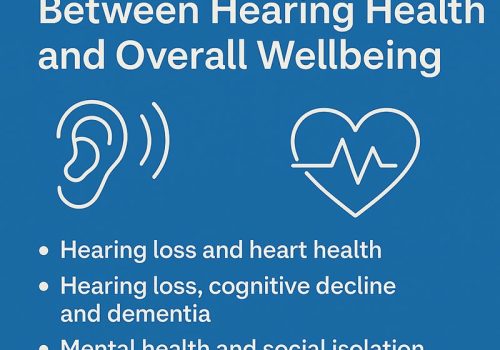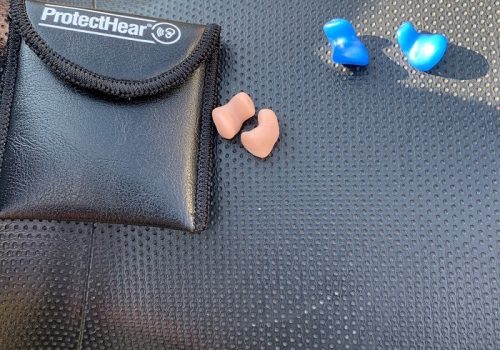Auditory Processing Disorder

Share this post:
Auditory Processing Disorder (APD) is a condition that affects an individual’s ability to comprehend and interpret auditory information. While individuals with APD may have normal hearing, they struggle to interpret and make sense of the sounds they hear. This can lead to difficulties in various areas, including speech and language development, listening comprehension, and sound localisation.
APD can manifest differently in each individual, making it a complex and often misunderstood disorder. Common symptoms may include difficulty following verbal instructions, trouble understanding speech in noisy environments, poor listening skills, and a tendency to misunderstand or misinterpret information. People with APD may also experience difficulty in localising sounds, distinguishing between similar sounds, and maintaining focus when listening for extended periods.
The causes of APD are still not fully understood, but it is believed to be a result of problems in the central auditory nervous system, which is responsible for processing sound information. It can be present from childhood or develop later in life due to factors such as head injuries, infections, seizure disorders, or exposure to loud noise. Evidence has suggested possible links to prenatal issues and family hereditary.
It is important to raise awareness about APD and promote understanding and support for individuals living with this condition. By recognising the challenges they face and providing appropriate management and treatment, it may be possible to help individuals with APD reach their full potential and improve their quality of life.
Through ongoing research and advancements in audiology and neuroscience, we continue to gain a deeper understanding of APD, leading to more effective assessment and treatment. It is important to try and create a world where individuals with APD are empowered to overcome their challenges and thrive in all aspects of life.
Since its symptoms are similar to those found in other disorders (such as autism disorder, dyslexia, etc.), APD is often misunderstood and undiagnosed. In many cases, the symptoms of APD can also be hidden by other issues or conditions, such as speech-language delays or attention deficit hyperactivity disorder (ADHD).
The only sure way to diagnose APD is to undergo a comprehensive evaluation by an audiologist or speech-language pathologist who specialises in auditory processing. Through various tests and assessments, they can identify specific auditory processing deficits and tailor the most appropriate treatment strategies for an individual based on their specific needs and challenges. Early detection and intervention are crucial to minimize the impact of APD on individuals’ academic, social, and emotional well-being.
Peripheral hearing loss can further exacerbate the symptoms of APD, so it is also important to emphasise the need to have regular assessments.
Treatment & Management of APD
It is important to remember that there may be no quick fix or easy solution for treating and managing APD. Treatment options are specific to each individual; what works for one may not necessarily work for another.
Managing APD often requires a group of professionals working in tandem, from audiologists, speech-language pathologists, teachers, and more.
Treatment and management for APD typically involves a combination of strategies aimed at improving auditory processing skills and enhancing communication abilities. These may include auditory training exercises, speech and language therapy, environmental modifications, and assistive listening devices. The aim is to help an individual’s practice their listening skills and utilise the brain’s plasticity to strengthen the mechanisms of speech processing.
Tools and strategies for treating APD could include the following:
- Environmental Modifications: Adjusting the environment to reduce background noise and distractions can enhance an individual’s ability to focus on auditory input. Asking people to speak slower may also be a useful strategy.
- Auditory Training: This involves structured activities and exercises designed to improve auditory processing skills. This may include strategies for learning to hear sounds better through distinguishing phonemes, recognising where sounds are coming from etc. These programs aim to enhance auditory discrimination, sequencing, memory, and other relevant abilities.
- Assistive Listening Devices: There are several assistive listening devices (ALDs) that can be used to help individuals living with APD and help improve their ability to process and understand auditory information. Here are a few examples:
- Frequency Modulation (FM) Systems: FM systems consist of a transmitter and a receiver. The speaker wears the transmitter, which sends their voice directly to the receiver worn by the listener. In effect this system brings the speakers voice closer. It ensures that the softer consonant sounds that become weaker as they travel over distance are heard clearly. With the added benefit of the background noise being reduced, this increases the signal-to-noise ratio, making it easier to focus on the voice being listened to.
- Low-Gain Hearing Aids: They can help individuals with APD hear sounds more clearly and may improve their ability to process auditory information. More details below.
- Soundfield Amplification Systems: Soundfield systems consist of one or more speakers placed strategically around a room. These systems amplify the speaker’s voice, making it more audible and clear for individuals with APD.
- Remote Microphone Systems: Similar to FM systems, remote microphone systems involve a microphone worn by the speaker and a receiver worn by the listener. The microphone captures the speaker’s voice and transmits it wirelessly to the listener’s receiver, enhancing sound clarity and reducing background noise.
- Speech Therapy: Speech-language pathologists can work with individuals with APD to develop strategies to improve language and communication skills, such as auditory comprehension, speech production, and expressive language.
- Language and Communication Strategies: Educators and therapists can teach individuals with APD specific strategies to compensate for their difficulties, such as visual cues, effective communication strategies, and improving listening skills.
- Educational Accommodations: Modifications in educational settings, such as preferential seating, providing written instructions, using visual aids, and using closed captioning in classrooms, can be helpful for individuals with APD.
- Multisensory Approach: Using multiple senses to reinforce auditory input can help individuals with APD. For example, combining visual cues, gestures, and tactile feedback with spoken instructions can enhance understanding.
Treatment & Management of APD
In addition to the above tools and strategies, hearing aid amplification may also benefit those living with APD.
Hearing aids may be beneficial for some individuals with APD, particularly if they have a co-existing hearing loss. Hearing aids are designed to amplify sounds, making them clearer and more audible. By improving the overall audibility of sounds, individuals with APD may have an easier time processing auditory information.
However, it is important to note that hearing aids alone may not be a cure for APD. APD is a complex neurological condition that affects the brain’s ability to process and interpret sound, and hearing aids primarily focus on amplifying sound.
If an individual with APD also has a hearing loss, hearing aids can improve sound perception and help alleviate some of the challenges associated with APD. However, for individuals with normal hearing or mild hearing loss, hearing aids may not provide significant enough benefits in addressing APD-specific difficulties.
So why are low-gain hearing aids sometimes recommended?
APD affects the auditory system and disrupts normal hearing, which in essence is a sort of hearing impairment.
When low-gain hearing aids are recommended, these are normally combined with a remote microphone accessory for maximum benefit.
If you have any concerns or questions about your hearing, it is aways best to consult a professional audiologist





